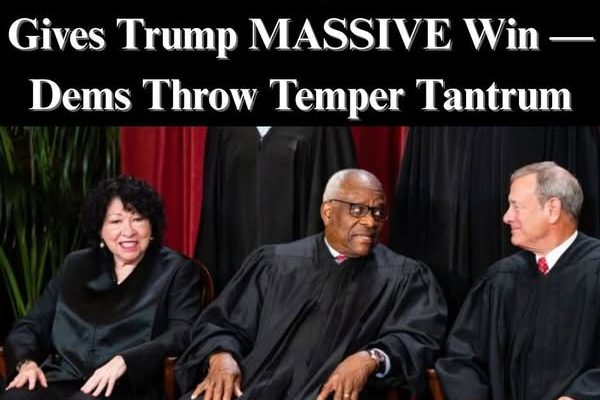On Monday, the Supreme Court agreed to hear an appeal led by Republicans regarding U.S. campaign finance regulations that restrict the amount of money political parties can expend on behalf of particular candidates.
The case, National Republican Senatorial Committee v. Federal Election Commission, was initially presented to the court by the National Republican Senatorial Committee (NRSC), the National Republican Congressional Committee (NRCC), and two Republican Senate candidates who were campaigning at that time, including the current Vice President JD Vance.
The central issue is whether federal restrictions on campaign spending by political parties infringe upon the free speech protections guaranteed by the First Amendment of the Constitution.
The petitioners urged the Supreme Court to examine this matter, asserting that the spending caps “significantly hinder political party committees from exercising their First Amendment rights to fully associate with and advocate for their candidates for federal office.”
A ruling from the Supreme Court’s conservative majority, which stands at 6-3, could have significant implications for campaign financing in the United States, potentially undermining the Federal Election Campaign Act of 1971, a statute enacted by Congress over 50 years ago to regulate the financial contributions made on behalf of candidates.
This case arises as federal election expenditures reach unprecedented levels: presidential candidates for 2024 have raised at least $2 billion and spent approximately $1.8 billion, according to data from the FEC.
The challenge is expected to be among the most prominent cases addressed by the Supreme Court in the upcoming term.
Additionally, the Trump-led Justice Department has indicated its intention to support the NRSC in this case, placing the government in an unusual position of opposing legislation established by Congress.
In the meantime, the Democratic National Committee, the Democratic Senatorial Campaign Committee, and the Democratic Congressional Campaign Committee have sought to uphold a lower appeals court ruling that confirmed the restrictions for 2024.
The Justice Department referenced principles of free speech as the basis for aligning with the NRSC, asserting that their choice represents “the rare instance that justifies an exception to that general principle” of endorsing federal legislation.
On Friday, the Supreme Court experienced a remarkable day, marking the final decision day of the term, as the justices curtailed judicial authority and achieved a victory for parents amidst the ongoing cultural conflict.
The Supreme Court’s more divisive rulings were split along ideological lines. Liberal justices occasionally dissented with pointed criticisms, while the Trump administration celebrated what it perceived as historic triumphs.
In the most prominent case of the day, the Supreme Court prohibited judges from issuing broad injunctions that impact the entire nation rather than just the parties involved in a dispute.
These injunctions, often referred to as “nationwide injunctions,” have caused frustration for President Donald Trump, as courts have favored plaintiffs and obstructed significant elements of his agenda.
The conflict arose after several judges issued injunctions that barred Trump from implementing his birthright citizenship initiative. Instead of requesting the Supreme Court to evaluate the merits of the proposal, which has been unanimously dismissed by the courts, Trump urged the court to abolish the practice of injunctions.
The Supreme Court’s 6-3 decision permits judges and litigants to seek broad relief through alternative avenues, such as class action lawsuits, following the court’s limitation on national injunctions.
The Supreme Court has delayed its ruling on Louisiana’s congressional maps, indicating that it needs further clarification during oral arguments in the fall.



